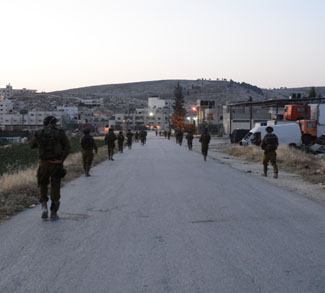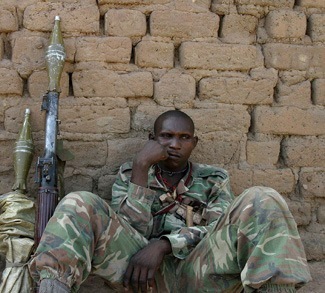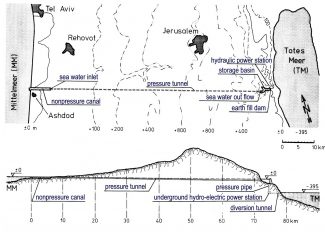After years of food shortages, political upheaval, and severe human rights abuses, Cuba is finally beginning to deal with the consequences of those failures. The widely publicized protests over the last few weeks have brought everyday life to a standstill. On Monday, security forces began sending out daily patrols across the country in major cities, a possibly futile attempt to stabilize an incredibly volatile situation. However, the chaos in Havana has presented a tantalizing opportunity for lawmakers in Washington. The very existence of an anti-capitalist, authoritarian regime just 90 miles from their border has been an embarrassment for the U.S. for decades. And while these legitimate protests are incredibly important, and they undoubtedly fight for a noble cause, a U.S. intervention on their behalf would be a disaster.
It goes without saying that America has tried to overthrow the Cuban government before; several times in fact. In 1961, the CIA attempted an invasion in the Bay of Pigs using Cuban nationals trained in America. After only three days of fighting, Fidel Castro’s regime dispatched the invasion force with ease. Later that same year, they tried to kill Castro directly via Operation Mongoose, which resulted in another humiliating failure. Between 1961-1963, five more attempts to kill Castro also failed.
Starting to see a pattern? Well, if so, you might be alone. Despite so many failures, the U.S. military and intelligence establishment still continues to believe they alone can change Cuba.
This is an incredibly inaccurate assertion, and one that many high-level US officials still cling to.
“We are asking the Biden administration to intervene to protect the Cuban people and end this regime to help bring about a democratic transition,” Orlando Gutierrez-Boronat, a leader in the Cuban-American community, announced on Tuesday. Even Miami Mayor Francis Suarez has called on the White House to consider the usage of aerial warfare.
“What I’m suggesting is that option is one that has to be explored, and one that cannot be just simply discarded.” Suarez told Fox News during a recent interview. In addition, the Cuban-American mayors from Doral, Hialeah, Hialeah Gardens, and Miami Lakes near Tampa all released a joint-statement also calling for intervention in Cuba. “We ask that our nation intervenes to help the Cuban people break the chains that have kept them in shackles for so many years,” the letter said.
Since the 1950s, Florida has played a unique role in the fight for Cuban freedom. Due to its close proximity to the island and similar climate, the sunshine state became a natural second-home for Cubans seeking asylum. Today, over one million Cubans live in Florida. The community they built in the years after they fled has blossomed into a distinct cultural and political juggernaut. While most Hispanic groups in America tend to embrace liberal policies, only 20% of Cuban-Americans identify as Democrats. Most political scientists attribute this divergence to the hawkish tendencies of Cuban-Americans, who tend to support military interventions and are generally more suspicious of government-run programs.
In national politics, these inclinations have made Cuban-Americans a slippery group to court for liberals over the decades. Several sustainable proposals to thaw relations with Havana over the years have been abandoned solely on the basis of future presidential ambitions. Florida’s key 29 electoral votes can easily determine the fate of a bid for the White House and, as it turns out, very few politicians have been willing to risk power for peace.
For instance, in 2014 President Barack Obama initiated a thawing of relations with Havana that included a historic, yet controversial, state visit. Cubans opposed the attempt at fixing relations with their homeland, resenting Obama’s acceptance of the Castro regime. Only two years later, 57% of Cuban-Americans voted to elect Donald Trump President, who had promised to “rip up” his predecessor’s economic deals with Cuba. During his re-election bid in 2020, the number grew to 70%.
However, these impressive Republican gains aren’t only because of Obama’s attempt at stabilizing relations with Cuba. In recent years, the GOP has increasingly accused Democrats of harboring socialist sympathies, a tactic which has worked particularly well with Cubans.
“The weaponization of U.S. policy toward Cuba was the entry point to help cement the idea that the Democratic Party is the party of socialists,” Fernand Amandi, a Democratic strategist, told the Miami Herald last year.
In the end, the politicization of Cuba policy has always been the main obstacle to lasting peace. Democrats are too afraid to look weak on the issue, and Republicans are too eager to needlessly escalate the situation to look even tougher. Any attempt at overthrowing Cuba, much less establishing a lasting democracy, would simply be a reflection of this political turmoil in Washington. It would fail because the United States would build a compromised, overly-negotiated, pork-barreled bureaucracy that would try to preserve American values, not Cuban ones.
Cuba is already on the path towards democratization, and Washington meddling in their internal affairs would needlessly endanger the validity of that progress. The country has been electing their own representatives for decades, and suffrage is granted to all Cubans who have lived on the island for at least two years and are over the age of 16. In 2011, Cuba diverged from its notoriously corrupt state-run economy and began allowing the establishment of private businesses. Even now, during the most extreme protests the nation has seen in years, only one activist has been killed during the demonstrations. In comparison, 25 Americans died during clashes with law enforcement in 2020 over the death of George Floyd.
Americans have always felt drawn to the role of liberator. And while global politics have evolved dramatically since U.S. troops marched triumphantly down the Champs Elysees in 1944, Americans still yearn for that type of total victory. It’s this well-meaning, yet nevertheless primitive instinct to impose high-minded morality on others that has led to so many crises. Take your pick: Vietnam, Iraq, Libya, Yemen, or Syria. And yes, even Cuba.
When a nation premises it’s interventions on the idea of rebuilding a country in its own image, it almost always fails. However, despite this terrible track record, the U.S. political establishment prowls the developing world in search of yet another country that needs to be “freed.” Like an addict that begrudgingly finds themselves in recovery, they secretly search for their next quick fix when no one is looking.
So, in the spirit of interventionist sobriety, Americans must completely reject this national push to interfere in Cuba’s affairs. Lasting change can only happen if it’s organic and untainted by a foreign power’s influence. It must originate within the system it seeks to change; otherwise, it can be cast aside as just another geopolitical distraction. An intervention by the U.S. government, who is an old rival of the Cuban nation, would simply delegitimize the current protests. A metamorphosis is occurring in Havana, and Washington must let nature take its course.
The views expressed in this article are those of the authors alone and do not necessarily reflect those of Geopoliticalmonitor.com




